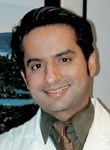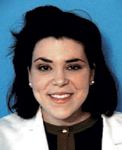
- Acne
- Actinic Keratosis
- Aesthetics
- Alopecia
- Atopic Dermatitis
- Buy-and-Bill
- COVID-19
- Case-Based Roundtable
- Chronic Hand Eczema
- Chronic Spontaneous Urticaria
- Drug Watch
- Eczema
- General Dermatology
- Hidradenitis Suppurativa
- Melasma
- NP and PA
- Pediatric Dermatology
- Pigmentary Disorders
- Practice Management
- Precision Medicine and Biologics
- Prurigo Nodularis
- Psoriasis
- Psoriatic Arthritis
- Rare Disease
- Rosacea
- Skin Cancer
- Vitiligo
- Wound Care
Article
Can CME, experience offset doctors' age-related decline?
National report — Does practice make perfect? A recent Harvard Medical School review suggests that as physicians age, the quality of care they provide decreases — the plethora of continuing medical education (CME) options available and the presumed benefits of wisdom notwithstanding.

Still, some dermatologists point to the value of experience and the diversity and ready availability of today's CME options as factors that can offset what the Harvard study suggests is an age-related decline in the quality of physicians' services.


Ranella J. Hirsch, M.D., a Boston private practitioner and an ASCDAS board member who finished her training in 2002, says that skin diseases rarely present the way they're described in textbooks. "So having seen different versions of something over time is an invaluable asset," she tells Dermatology Times.
Quality declining A. Bernard Ackerman, M.D., director emeritus of the Ackerman Academy of Dermatopathology in New York, says that the quality of healthcare in general is declining, even as the sophistication of technology and pharmaceutical agents advances. Older doctors, he says, practiced medical dermatology - not surgical dermatology or cosmetic surgery - and cared for patients with disease.
"The younger people are more conversant with things contemporaneous," he says. "But ... many young dermatologists who do mostly cosmetics are not caring for patients with disease. In fact, some of them are creating the illusion of disease. If a patient is told that aging is a disease, that is misleading the patient."
Today's physicians benefit from an expanded range of CME options, including traditional seminars but also many self-serve and distance learning tools such as CD-ROMs and the Internet, as well as cassette tapes of presentations available from such organizations as the American Academy of Dermatology.
Future The future probably will involve more Internet-based and teledermatology programming, Dr. Hirsch says. Along with eliminating the need for travel, such approaches can deliver increasingly specialized training.
"In an ideal world," she says, "what could work is an expanded model of the RxDerm-L discussion group. Somebody would present a difficult case, and one could have a walking dialogue of three generations of dermatologists on how to treat it. That has the potential to be much more far-reaching and interactive than all-day lectures."
Traditional CME meetings, of course, still are offered routinely - often in enticing vacation spots. But some doctors have concerns about them, and about whether they fill today's needs for keeping pace with medical developments.
Newsletter
Like what you’re reading? Subscribe to Dermatology Times for weekly updates on therapies, innovations, and real-world practice tips.










2 Commerce Drive
Cranbury, NJ 08512
All rights reserved.





